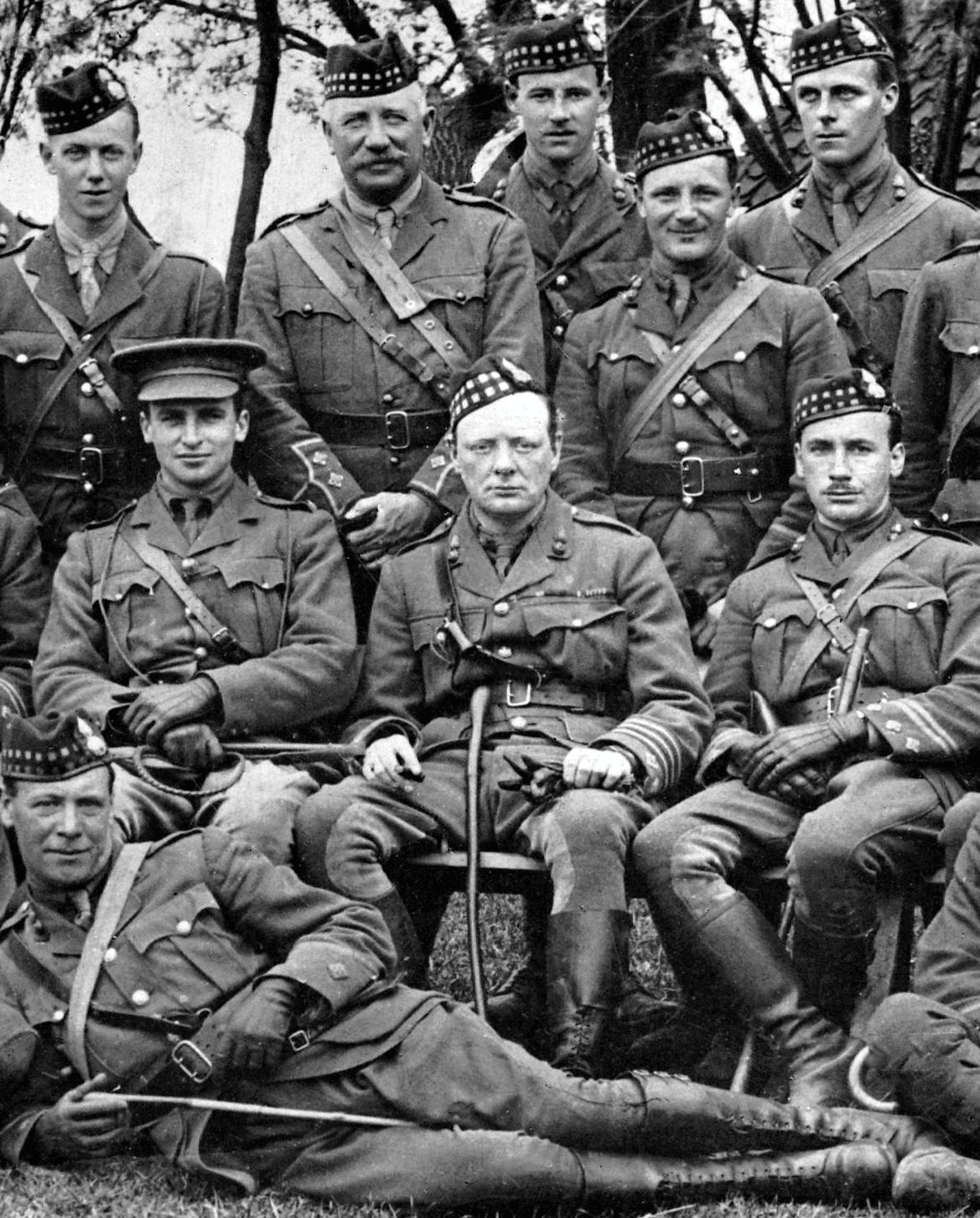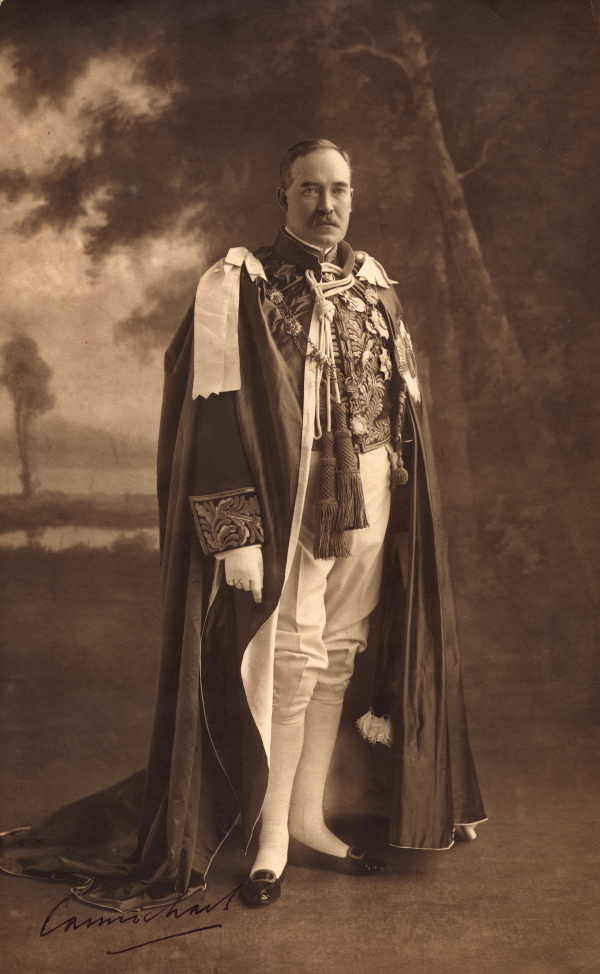|
Scottish Liberals
The Scottish Liberal Party, the section of the Liberal Party in Scotland, was the dominant political party of Victorian Scotland, and although its importance declined with the rise of the Labour and Unionist parties during the 20th century, it was still a significant, albeit much reduced force when it finally merged with the Social Democratic Party in Scotland, to form the Scottish Liberal Democrats in 1988. The party lost its last remaining seats in the UK Parliament in 1945, and continued to decline in popular support in the post war years, with Jo Grimond (who won back Orkney and Shetland in 1950) being the sole Scottish Liberal MP in the House of Commons from 1951 to 1964. The party gained a partial revival in the 1964 general election returning three further MPs; George Mackie, Russell Johnston and Alasdair Mackenzie. A further gain came the following year with David Steel's victory at the Roxburgh, Selkirk and Peebles by-election. Steel went on to become a pivotal figure ... [...More Info...] [...Related Items...] OR: [Wikipedia] [Google] [Baidu] |
Liberalism
Liberalism is a political and moral philosophy based on the rights of the individual, liberty, consent of the governed, political equality and equality before the law."political rationalism, hostility to autocracy, cultural distaste for conservatism and for tradition in general, tolerance, and ... individualism". John Dunn. ''Western Political Theory in the Face of the Future'' (1993). Cambridge University Press. . Liberals espouse various views depending on their understanding of these principles. However, they generally support private property, market economies, individual rights (including civil rights and human rights), liberal democracy, secularism, rule of law, economic and political freedom, freedom of speech, freedom of the press, freedom of assembly, and freedom of religion. Liberalism is frequently cited as the dominant ideology of modern times.Wolfe, p. 23.Adams, p. 11. Liberalism became a distinct movement in the Age of Enlightenment, gaining popularity ... [...More Info...] [...Related Items...] OR: [Wikipedia] [Google] [Baidu] |
Scottish Devolution
Devolution is the process in which the central British parliament grants administrative powers (excluding principally reserved matters) to the devolved Scottish Parliament. Prior to the advent of devolution, some had argued for a Scottish Parliament within the United Kingdom – while others have since advocated for complete independence. The people of Scotland first got the opportunity to vote in a referendum on proposals for devolution in 1979 and, although a majority of those voting voted 'Yes', the referendum legislation also required 40% of the electorate to vote 'Yes' for the plans to be enacted and this was not achieved. A second referendum opportunity in 1997, this time on a strong proposal, resulted in an overwhelming 'Yes' victory, leading to the Scotland Act 1998 being passed and the Scottish Parliament being established in 1999. Scottish voters were given the chance to vote 'Yes' on outright independence in a 2014 referendum. In an effort to persuade Scots to rema ... [...More Info...] [...Related Items...] OR: [Wikipedia] [Google] [Baidu] |
Archibald Sinclair, 1st Viscount Thurso
Archibald Henry Macdonald Sinclair, 1st Viscount Thurso, (22 October 1890 – 15 June 1970), known as Sir Archibald Sinclair between 1912 and 1952, and often as Archie Sinclair, was a British politician and leader of the Liberal Party. Background and education Sinclair was born in 1890 in Caithness, Scotland. Sinclair was the son of a Scottish father, Clarence Granville Sinclair, and his American wife Mabel Sands, daughter of Mahlon Day Sands, and half-sister of Ethel Sands. His mother died shortly after his birth, and his father in 1895. He was brought up in families including those of his paternal grandfather Sir Tollemache Sinclair, 3rd Baronet, his uncle William Macdonald Sinclair, and Owen Williams, married to his aunt Nina. Educated at Eton College and the Royal Military College, Sandhurst, Sinclair was commissioned into the Life Guards in 1910. In 1912, he succeeded his grandfather, as the fourth Baronet, of Ulbster. He became one of the largest landowners in the U ... [...More Info...] [...Related Items...] OR: [Wikipedia] [Google] [Baidu] |
Sir John Anthony
Sir John Anthony JP (1862–1935) was a late 19th and early 20th century Scottish businessman who served as Provost (civil), Provost of Govan from 1903 to 1906. He was actively involved in the Temperance movement. He was Chairman of the Scottish Liberal Association. Life He was born in Kirkford near Stewarton in Ayrshire on 9 February 1862 to Andrew Anthony, a shoemaker, and his wife Agnes McCrae. He was educated at Stewarton Public School. In 1875 he began working as a message boy (delivering telegraphs) based at Stewarton Railway Station. Around 1880 he transferred to Pollokshaws and around 1882 moved to Govan, still working for the railway, but as a cashier. In 1889 he became a partner in Cockburn Brothers of Govan, iron and steel product manufacturers at St James Ironworks on Helen Street in Govan. In 1897 David Cockburn died and Anthony then became sole proprietor. He expanded the business into South Africa. He joined Govan town council as a councillor in 1893, beco ... [...More Info...] [...Related Items...] OR: [Wikipedia] [Google] [Baidu] |
Donald Maclean (British Politician)
Sir Donald Maclean (9 January 1864 – 15 June 1932) was a British Liberal Party politician in the United Kingdom. He was Leader of the Opposition between 1918 and 1920 and served in the Cabinet of Ramsay MacDonald's National Government as President of the Board of Education from 1931 until his death in June the following year. Life and career Born in Farnworth, near Bolton, Lancashire, Maclean was the eldest son of John Maclean, a cordwainer originally of Tiree in the Inner Hebrides, and his wife Agnes Macmillan. His younger brother was Sir Ewen Maclean. Maclean practiced as a solicitor with practices in Cardiff and Lincoln's Inn Fields, London. A member of the Presbyterian Church of England, he was vice-president of the Cardiff Free Church Council in 1902–3, and also worked closely with the National Society for the Prevention of Cruelty to Children. He was a last-minute choice as one of the Liberal Party candidates in Bath at the 1900 general election, but was defeat ... [...More Info...] [...Related Items...] OR: [Wikipedia] [Google] [Baidu] |
Eugene Wason
Eugene Wason (26 January 1846 – 19 April 1927) was a Scottish lawyer and Liberal politician who sat in the House of Commons in three periods between 1885 and 1918. Family Eugene Wason came from a Liberal family. His father, brother and son-in-law, were all Liberal Members of Parliament. His father was Rigby Wason sometime MP for Ipswich, his brother was Cathcart Wason the MP for Orkney and Shetland from 1900 to 1921 (and previously an MP in New Zealand 1876–79), first elected as a Liberal Unionist but later switching to the Liberals and his daughter Minna married John William Crombie who was MP for Kincardineshire from 1892 to 1908. In 1870, Wason married Eleanor Mary from Dolgelly, the daughter of C. R. Williams, Deputy Lieutenant of Merionethshire. They had three sons and two daughters.''Who was Who'', OUP 2007 Stature and character Wason, like his brother Cathcart, was well over 6 feet tall.The Times, 20 April 1927 He was described by one of the contemporary Speakers of ... [...More Info...] [...Related Items...] OR: [Wikipedia] [Google] [Baidu] |
John William Crombie
John William Crombie (4 March 1858 – 22 March 1908) was a Scottish woollen manufacturer, folklorist and Liberal Party politician. Early life Crombie was born in Aberdeenshire, the eldest son of John Crombie of Balgownie Lodge, near Aberdeen.''Who was Who'', OUP 2007 He attended the Gymnasium School, Old Aberdeen and went on to the University of Aberdeen where he obtained an MA degree. He also studied in France and Germany.The Times, 23 March 1908 p10 Career Crombie's father was a member of the manufacturing family the Crombies of Cothal Mills and Grandholm and in 1880 Crombie followed him into the family business, becoming a Director of J. & J. Crombie, Ltd, woollen manufacturers, the company founded 1806 by his grandfather. In 1892 he resigned from the business to take up politics. Politics Member of Parliament Crombie was elected Liberal MP for Kincardineshire at the 1892 general election. At this election Crombie faced a Liberal Unionist opponent, J Stephen. Crombie he ... [...More Info...] [...Related Items...] OR: [Wikipedia] [Google] [Baidu] |
Edward Marjoribanks, 2nd Baron Tweedmouth
Edward Marjoribanks, 2nd Baron Tweedmouth, (8 July 1849 – 15 September 1909), was a moderate British Liberal Party statesman who sat in the House of Commons from 1880 until 1894 when he inherited his peerage and then sat in the House of Lords. He served in various capacities in the Liberal governments of the late 19th and early 20th centuries. Biography Tweedmouth was the son of Dudley Marjoribanks, 1st Baron Tweedmouth, and Isabella, daughter of Sir James Hogg, 1st Baronet. Ishbel Hamilton-Gordon, Marchioness of Aberdeen and Temair, was his sister. He was descended from Joseph Marjoribanks, a wine and fish merchant in Edinburgh who died in 1635 and is thought to have been the grandson of Thomas Marjoribanks of Ratho,Marjoribanks, Roger. "Marjoribanks of Lees"''The Marjoribanks Journal'' Number 3 page 14, June 1995. Accessed on 22 May 2010 head of the lowland Clan Marjoribanks. He was educated at Christ Church, Oxford, but expelled in 1870 following a prank that led to the d ... [...More Info...] [...Related Items...] OR: [Wikipedia] [Google] [Baidu] |
Thomas Gibson-Carmichael, 1st Baron Carmichael
Thomas David Gibson-Carmichael, 1st Baron Carmichael, (18 March 1859 – 16 January 1926), known as Sir Thomas Gibson-Carmichael, 11th Baronet, between 1891 and 1912, was a Scottish Liberal politician and colonial administrator. He was also a keen naturalist. Background and education Born near Edinburgh, Scotland, Carmichael was the eldest son of Reverend Sir William Henry Gibson-Carmichael, 10th Baronet, and Eleanora Anne Anderson, daughter of David Anderson. He was educated at the Wixenford House school of Cowley Powles, then near Eversley in Wixenford and St John's College, Cambridge. He succeeded his father as 11th Baronet in 1891. Political career Carmichael was Private Secretary to George Trevelyan and Lord Dalhousie, when Secretaries for Scotland. He unsuccessfully contested Peebles and Selkirk in 1892 but was successfully returned as Liberal Member of Parliament for Midlothian in 1895, succeeding William Ewart Gladstone. He continued to represent this constituency u ... [...More Info...] [...Related Items...] OR: [Wikipedia] [Google] [Baidu] |
Victor Bruce, 9th Earl Of Elgin
Victor Alexander Bruce, 9th Earl of Elgin, 13th Earl of Kincardine, (16 May 184918 January 1917), known as Lord Bruce until 1863, was a right-wing British Liberal politician who served as Viceroy of India from 1894 to 1899. He was appointed by Prime Minister Arthur Balfour to hold an investigative enquiry into the conduct of the Boer War in 1902 to 1903. The Elgin Commission was the first of its kind in the British Empire, and it travelled to South Africa and took oral evidence from men who had actually fought in the battles. It was the first to value the lives of the dead and to consider the feelings of mourning relatives left behind, and it was the first occasion in the history of the British Army that recognised the testimony of ordinary soldiery as well as that of the officers. Background and education Elgin was born in Montreal, Canada East (now Montreal, Quebec), the son of James Bruce, 8th Earl of Elgin, who served as Governor-General of Canada at the time, and his wife, ... [...More Info...] [...Related Items...] OR: [Wikipedia] [Google] [Baidu] |
Anna Lindsay (Scotland)
Anna Lindsay ('' née'' Dunlop; 24 June 1845 – 1 March 1903) was a Scottish women's activist. She was one of the founders of the Glasgow Association for the Higher Education of Women and her name was said to be synonymous with the women's movement in Scotland. She was the first chairperson of the Scottish Women's Liberal Federation. Biography Lindsay was born in Edinburgh in 1845, the eldest daughter of Eliza Esther (née Murray) and Alexander Colquhoun-Stirling-Murray-Dunlop, an MP and lawyer. She was educated at home, and went on to be one of the first students at the University Classes for Women in Edinburgh where she impressed her professors. The Glasgow Association for the Higher Education of Women was started after a suggestion of Mrs Jean Campbell by Professor John Nichol in 1868 to start lectures for women. Lindsay was one of its founders.K. D. Reynolds, ‘Lindsay , Anna (1845–1903)’, Oxford Dictionary of National Biography, Oxford University Press, 200access ... [...More Info...] [...Related Items...] OR: [Wikipedia] [Google] [Baidu] |
Scottish Women's Liberal Federation
The Scottish Liberal Party, the section of the Liberal Party in Scotland, was the dominant political party of Victorian Scotland, and although its importance declined with the rise of the Labour and Unionist parties during the 20th century, it was still a significant, albeit much reduced force when it finally merged with the Social Democratic Party in Scotland, to form the Scottish Liberal Democrats in 1988. The party lost its last remaining seats in the UK Parliament in 1945, and continued to decline in popular support in the post war years, with Jo Grimond (who won back Orkney and Shetland in 1950) being the sole Scottish Liberal MP in the House of Commons from 1951 to 1964. The party gained a partial revival in the 1964 general election returning three further MPs; George Mackie, Russell Johnston and Alasdair Mackenzie. A further gain came the following year with David Steel's victory at the Roxburgh, Selkirk and Peebles by-election. Steel went on to become a pivotal figure ... [...More Info...] [...Related Items...] OR: [Wikipedia] [Google] [Baidu] |







